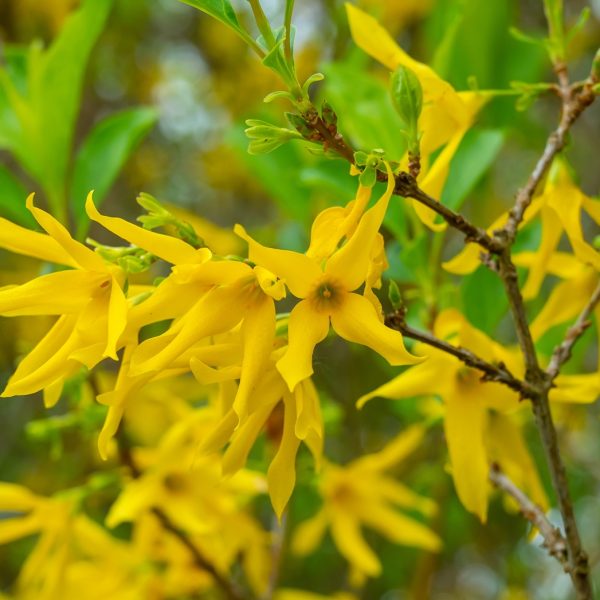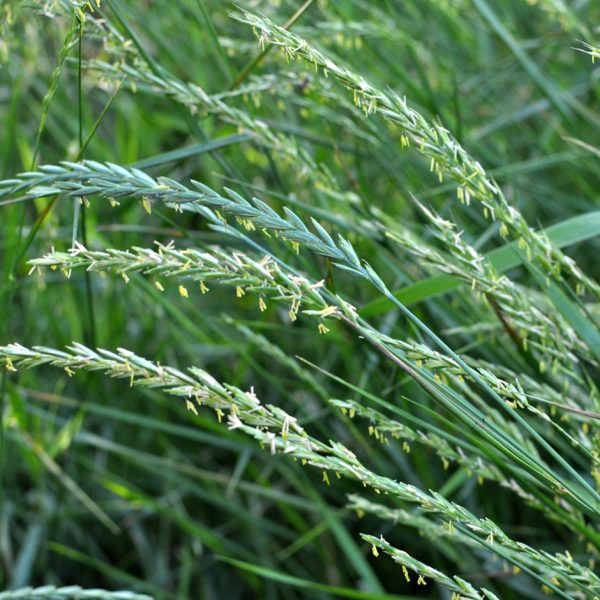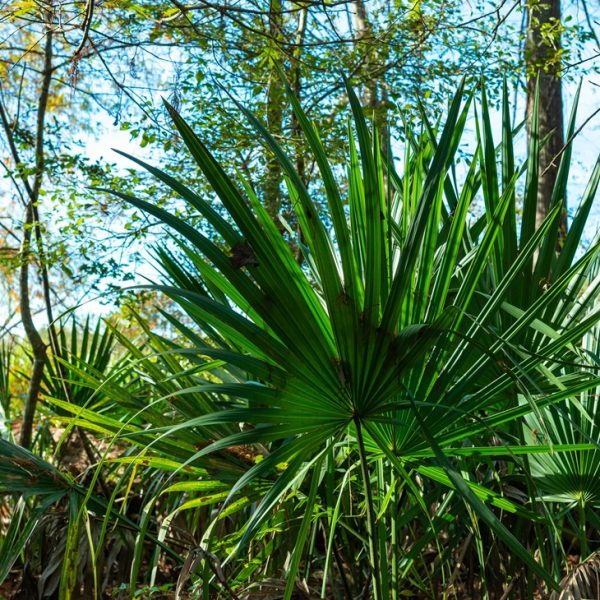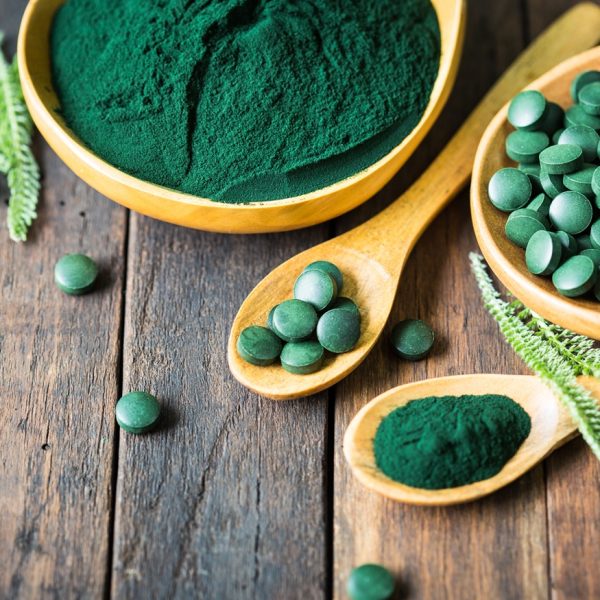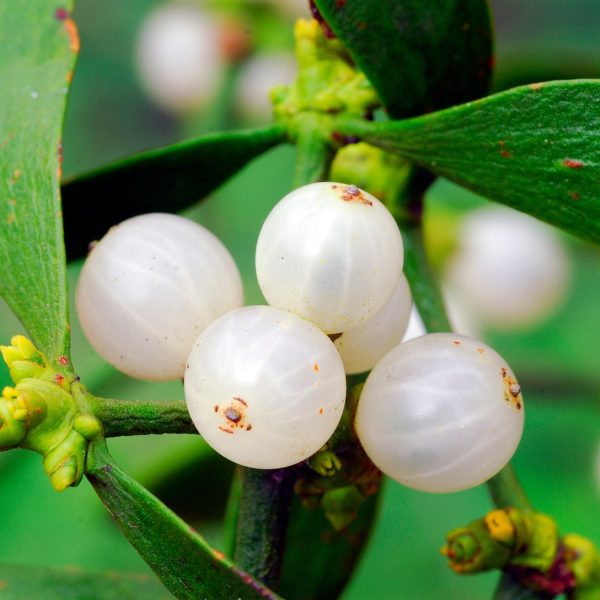Vaginal thrush is one of the most common fungal conditions affecting the vulva and/or the vagina of everyone with a female anatomy.
Understanding vaginal thrush

Vulvovaginal Candidiasis or thrush is one of the most common fungal conditions affecting the vulva and/or the vagina of female-anatomied people. It is believed to affect up to 70% of all women at least once in their lifetimes (1). Of that number between 5 and 9% of those women will go onto experience it recurrently or chronically, meaning they have experienced a flare up at least four times in a year. Interestingly, although sounding a small percentage, recurrent thrush globally impacts around 138 million women annually (2).
Thrush is caused by species of the Candida genus of fungi, most commonly Candida albicans. While these fungi live in most vaginas during adulthood without causing problems, when conditions are right the fungi can overgrow, causing thrush.
Thrush is one of the most common causes for vulvovaginal irritation and infection and can easily be mistaken for conditions such as bacterial vaginosis (BV), vulval dermatitis or aerobic vaginitis. Testing via swabbing is a key diagnostic that must be undertaken so the correct treatment can be used to regain control in this area.
How does thrush work?

Both the vagina and the vulva have their own microbiomes. These are communities of beneficial microbes that work symbiotically with the body to the benefit of both the host body and that of the microbial community. Most areas of the body have their own microbiome types, distinguishable from that of other sites in or on the body by community make up.
The role of the vaginal microbiome is to provide immune defence against pathogenic microbes that may otherwise cause infection. In health, the vaginal microbiome is made up of a mix of beneficial viruses, fungi and bacteria that live together in harmony and balance.
The relatively new field of vaginal microbiome mapping has shown us that the most prevalent and beneficial (when in the right ratios) microbes for the vaginal space are a group of 5 lactobacilli bacteria. It is these which work mainly to keep any pathogenic microbes in check by dominating the space and producing lactic acid which keeps the vagina acidic at around pH4.
Although Candida fungi live in most vaginas without causing an issue, there are multifactorial reasons that Candida can proliferate and cause a problem. In addition, because they are more or less the only pathogenic microbes in this space that prefer a more acidic environment, they can thrive in the a Lactobacilli dominated space (1).
When the conditions are right Candida yeast numbers can increase in number to colonise the vaginal mucous membrane surfaces and change from bud cells to hyphae and pseudohyphae states. In these states the Candida can burrow into the vaginal tissue to take hold or remain mobile to acquire nutrients. This then causes the common signs and symptoms associated with thrush.
Thrush can be caused by around 4 main species of Candida. The most commonly found form is Candida albicans. Many of the allopathic treatments are aimed at this type of Candida. However, if it is caused by another type, it may be harder to shift with allopathic treatment alone.
In the UK, swab microscopy and culture testing is the standard diagnostic for thrush but result reports varies from area of area and some may define which species of Candida is involved and some may not. Testing is also able to determine whether hyphae growth is involved and how heavy the growth is (1).
In addition, there are several forms of thrush: acute, recurrent and chronic. Acute can be considered a one time incident that is easily cleared by treatment. Recurrent is defined as a minimum of four episodes in a year, one of which has at least been proven on testing. A recurrent form can also prove stubborn to allopathic treatments. Chronic is considered a much more persistent form that can be related to the person’s menstrual cycle, but not always. Signs and symptoms can improve or worsen over time, but some or all of them will always be present at some time or other (1). Possible causes and treatments can differ depending on type.
Understanding the root
As previously mentioned there are multifactorial causes to thrush and these can change depending on the person and the type. Here are lists of typical causes by type.
Acute vaginal thrush
- Use of antibiotics
- Poorly controlled blood sugar levels
- Tight, warm clothing
- Fabric washing agents
- Tissue damage due to trauma
- Pregnancy
Recurrent and chronic vagina thrush
- Subclinical immune deficiency
- Several acute flares ups within a short amount of time
- Subclinical hormone imbalance
- Poorly controlled blood sugar levels
- Atopic allergy
- Tissue damage due to trauma
- Intimate washing with soaps
- Fabric washing agents
- Toilet paper
- Cycling or rowing
- Use of hormonal medications
- Pregnancy
- Poor condition and hygiene of sex toys
- Resistance to repeated use of anti-fungal medication
All of these factors can disrupt the delicate microbiome balance and mean that Candida can proliferate in the vaginal space. When this goes on for long enough or the causal conditions remain the same for significant length, recurrent and chronic pictures can build up. In these situations tissue damage is more likely to occur, through irritation and hyphae growth, meaning that it becomes much more stubborn, is challenging to clear and a great place for opportunistic infection to take hold.
More difficult to define are the psychological factors influencing the recurrent and chronic types, and these definitely have an impact on the person suffering with them.
Signs and symptoms of vaginal thrush
Vaginal conditions can be a challenge to diagnose correctly. The most common sign is a white cottage cheese-type discharge and the most common symptom is itch.
These may be accompanied by (1):
- A white film on the vulva or in the vagina
- Redness and inflammation of the area
- Visible patches of fungal growth
- Pain on intercourse
- Pain on urination
- And if a lot of scratching in response to the itching has taken place, the vaginal or vulval tissues can appear damaged and may bleed.
As previously addressed, testing is of vital importance as thrush can appear to have many of the same symptoms as other vaginal conditions but needs very different treatment.
The recurrent or chronic forms can exist in the background, flaring up at prone times. If this is the case, you may experience background signs and symptoms such as mild irritation and redness for the majority of the time, with other symptoms only accompanying them during a flare up.
Herbal solutions

As challenging as vaginal conditions can be to diagnose so they can be to treat and effectively clear up. Recurrence is common so longer term strategies may need to be considered and prepared for.
Once testing has been performed (ideally finding out the species causing the issues), it would be a good idea to work out the triggers involved in the individual case. This helps to understand what is going on. Once some of these have been determined the approach can be tailored to the type. In this section we will be covering herbal solutions most ideal for an acute type, some of which can also find a place in treating a recurrent and chronic picture.
If you have a recurrent or chronic type, you keep getting acute flare-ups or what you are trying hasn’t improved the situation after a month, its best to seek professional help from a qualified medical herbalist.
If you have ever experienced a thrush flare up you will know that cooling and soothing the itch is paramount. With this in mind we want to reduce discomfort as quickly as possible whilst looking at longer term strategies.
So let’s start with the anti-inflammatories that you use topically.
Anti-inflammatory herbs
Aloe vera
Aloe vera is easily bought as a gel from your local health food shop. This is made from the ‘gel’ matrix in the centre of Aloe vera leaves. It is anti-inflammatory and anti-fungal, soothing and calming. Applied topically it can be popped in the fridge before hand to make it an extra cooling application. Use externally, so on the vulva. Be sure to read the labelling when buying aloe vera gel though, as these products are particularly filled with chemicals which may be irritating.
Calendula
Marigold can be purchased from herbalists’ suppliers or good health food shops as dried petals and is very healing for the skin and also anti fungal. It can be used as a tea to be drunk or to be applied as a calming anti-inflammatory ‘wash’, and is the key ingredient for vaginal pessaries.
Chamomile
Chamomile can be purchased from herbalists’ suppliers or good health food shops as dried petals, it can be made into a ‘tea’ to be applied as a calming anti-inflammatory ‘wash’.

Mucous membrane support
Next, we look at herbs that are for oral consumption.
Plantago major
Taken as a tea, plantain is wonderfully supportive to the mucous membranes and can help if there is an allergic component to the thrush too and plantago acts as a natural antihistamine.
Marshmallow root
Decoct overnight in cold water. Marshmallow root is a wonderful cooling demulcent which affects and strengthens all mucous membrane throughout the body including that of the vagina, where the vaginal microbiome lives.
Nervous system support
Oat straw
Oat straw is a wonderfully grounding and nourishing nervine for the nervous system, this also has a tradition of being useful for vaginal nerve pain. Drunk as a tea, but it can also be added to sitz baths, below (1).
Siberian ginseng
Siberian ginseng is known as an adaptogen, which helps your body adapt to all types of stress, which includes vaginal infections, this herb supports your nervous system and is useful during times of stress. It supports your energy rather than depleting it (1). Stress weakens immunity leading to bacterial overgrowth so ginseng can help with the root cause of this.
Chamomile
Chamomile is such a simple plant we almost certainly all have in the cupboard as teabags. Wonderful to take as a tea, it can soften the edges around stress and also supports your digestive function (1).
Anti-fungals/ Anti-bacterials
Garlic
Garlic is a powerful anti-fungal herb. Use this crushed, chopped and lightly cooked in food this is a great way to get the benefits systemically without directly damaging the vaginal microbiome. Can be a useful adjunct to a direct approach (1).
P’au d’arco
Made from the bark of the tree, P’au d’arco is a herb traditionally used by the Inca people and has many useful actions. It is anti-fungal and specific to Candida, but also aids immune system health generally. Drunk as a tea it has a warming, almost smokey taste and can be drunk daily during a flare up to help bring things into check (1).
Immune system support
Medicinal Mushrooms – often recommended by herbalists, medicinal mushrooms enhance the immune response due to their polysaccharide content. This is helpful as a background therapy to aid vaginal infection and also where allergy may play a role in thrush (1). These can include chaga, reishi, cordyceps, shitake and maitake.
Echinacea
Echinacea is one of the herbs most publicly associated with boosting immunity, Echinacea can be helpful when looking at acute infection or for long standing conditions that have really taken hold. Best used as a tincture rather than a tea due to its chemistry (1).
Calendula
Traditionally known as a lymphatic, Calendula is immunomodulatory, assisting the lymph nodes in ‘cleaning’ the lymphatic fluid where many components of the immune system reside (1).
Holistic solutions
Aside from using herbs alone, there are other holistically supportive things you can do alongside when you have thrush.

Find your triggers
Finding your triggers is a very important one. Can you tell what makes it better or what makes it worse? What was happening just before you noticed the flare up? Keeping a diary or journal can be very useful when looking at this. You may notice some patterns emerging!
Probiotics
Although we don’t yet have any evidence to support direct transmission from the digestive system to the vagina, translocation from the anus to the vagina may occur. Taking probiotics containing Lactobacillus rhamnosus and Lactobacillus reuteri have been extensively trialled and shown to have some efficacy for women suffering with thrush (1).
Improve your GI
Reducing the glycemic load of your food will impact blood sugar balance. As Candida feeds on sugars, helping your body to process sugars properly can mitigate the risk of future flare ups (1).
Washing
Something we are not routinely taught when growing up, but the way we wash can have a big impact on our intimate microbiome. Using soap on the mucous membranes of the vulva and vagina is likely to strip them of their beneficial microbial colonies, making opportunistic infection more likely. Only use soap on the areas where hair grows and wash the labia with water only. The vagina is self-cleaning so no need to wash or douche there at all (1).
Caprylic acid
Caprylic acid is a fatty acid found in coconut oil and used as a supplement, taken orally, with anti-fungal properties. It is believed to break down the cell membranes of Candida cells, making it very handy in a flare up. Dosage is 150-300mg a day but is best avoided in pregnancy. (1)
Apple cider vinegar
Apple cider vinegar is a rich, acidic vinegar made from apple cider, containing enzymes and proteins is perfect for use in a Sitz bath to help restore the acidic environment and soothe the affected area. Use 1-2 cups per Sitz bath. (1)
References
- Bishop, K. It’s Your Power Portal: Take Control of Your Vaginal Health with Herbal and Holistic Care. 1st ed. Aeon Books; 2022
- Denning, David W et al. “Global Burden Of Recurrent Vulvovaginal Candidiasis: A Systematic Review”. The Lancet Infectious Diseases, vol 18, no. 11, 2018, pp. e339-e347. Elsevier BV, https://doi.org/10.1016/s1473-3099(18)30103-8. Accessed 18 Jan 2022.

